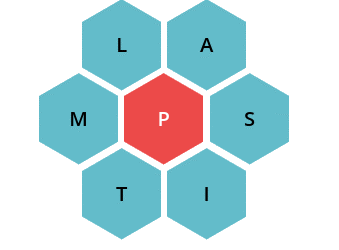
Can Tapaday 200mg Interact with Other Medications?
Tapaday 200mg, with tapentadol as its active ingredient, is a potent opioid pain reliever often prescribed for moderate to severe pain. Like many other opioid-based medications, it carries not just the power to relieve pain but also the potential to interact with other drugs. Understanding these interactions is vital to ensuring patient safety and effective pain management.
In this comprehensive article, we explore the potential interactions between Tapaday 200mg and other medications, delving into the complexities of drug interactions, the risks associated with certain combinations, and best practices for managing these interactions. By shedding light on this critical issue, we aim to guide both healthcare professionals and patients toward making informed decisions.
How Tapaday 200mg Works: A Brief Overview
Tapaday 200mg, primarily composed of tapentadol, works by binding to the opioid receptors in the brain and spinal cord, altering the perception of pain. It also inhibits norepinephrine reuptake, which helps enhance its analgesic effect. This dual mechanism of action makes Tapaday effective in treating pain that is both neuropathic and nociceptive.
Adults with moderate, severe, intolerable, or tremendous pain can benefit from the short-term, acute pain relief offered by Tapaday 200mg Tablets. It can be used to treat a wide range of illnesses, such as fever, toothaches, period discomfort, and colds. Included in Tapaday 200 mg is Tapentadol, a narcotic analgesic that relieves pain not alleviated by other drugs. It is recommended to take 200mg of Tapaday once daily.
However, with great potency comes an increased risk of drug interactions. Tapaday’s influence on central nervous system (CNS) function and its metabolism through liver enzymes means that caution is necessary when combining it with other medications.
Common Drug Interactions with Tapaday 200mg
1. Tapaday and CNS Depressants
Central Nervous System depressants include medications like benzodiazepines (e.g., diazepam, lorazepam) and barbiturates. These drugs work by slowing down brain activity, and when combined with Tapaday, the effect can be magnified. The result may be increased drowsiness, respiratory depression, and a higher risk of overdose.
The combination of Tapaday 200mg with CNS depressants should be approached with extreme caution, as it can lead to life-threatening side effects such as coma or profound sedation. If these drugs must be used together, dosage adjustments and careful monitoring are imperative.
2. Tapaday and MAO Inhibitors
Monoamine oxidase inhibitors (MAOIs), such as phenelzine or tranylcypromine, are prescribed for certain psychiatric conditions like depression. Tapentadol’s mechanism involves norepinephrine reuptake inhibition, and when taken alongside MAOIs, this can cause dangerous increases in blood pressure and serotonin levels. This interaction, known as serotonin syndrome, can be fatal if not managed swiftly.
As a general rule, Tapaday 200mg should not be used within 14 days of MAOI therapy to avoid this potentially lethal interaction.
3. Tapaday and Serotonergic Drugs
Serotonergic drugs include SSRIs (Selective Serotonin Reuptake Inhibitors) like fluoxetine and sertraline, as well as SNRIs like venlafaxine. These medications increase serotonin levels in the brain, and when combined with Tapaday, they elevate the risk of serotonin syndrome. Symptoms of this condition include agitation, hallucinations, rapid heart rate, and muscle rigidity.
While serotonergic drugs are often used to treat anxiety and depression, their combination with Tapaday must be carefully monitored to prevent adverse effects.
4. Tapaday and Anticholinergic Drugs
Anticholinergic medications, such as atropine and oxybutynin, are used to treat conditions like irritable bowel syndrome, asthma, or overactive bladder. These drugs can cause dry mouth, constipation, urinary retention, and blurred vision. When Tapaday 200mg is taken in conjunction with anticholinergic drugs, the risk of exacerbating these side effects increases, which can result in severe bowel dysfunction or urinary retention.
5. Tapaday and CYP450 Enzyme Inhibitors/Inducers
Tapaday is primarily metabolized through the CYP450 enzyme system in the liver. CYP3A4 inhibitors, such as ketoconazole or clarithromycin, can slow down the metabolism of Tapaday, leading to higher levels of the drug in the bloodstream. This can enhance the analgesic effect but also increase the risk of toxicity and side effects.
On the other hand, CYP3A4 inducers like rifampin can accelerate the metabolism of Tapaday, reducing its effectiveness and requiring higher doses for the same analgesic effect. In such cases, adjusting the Tapaday dosage is crucial to maintaining therapeutic efficacy.
6. Tapaday and Alcohol
Alcohol is a potent CNS depressant, and its interaction with Tapaday can lead to excessive sedation, impaired motor function, and respiratory depression. Combining Tapaday with alcohol should be strictly avoided, as it not only increases the likelihood of severe side effects but also raises the risk of accidental overdose.
Managing Drug Interactions: What to Keep in Mind
While Tapaday 200mg is effective in pain management, it must be prescribed and used with caution, especially in patients taking other medications. Here are a few best practices to manage drug interactions:
- Consult Your Healthcare Provider: Always inform your doctor about all medications and supplements you’re taking before starting Tapaday.
- Regular Monitoring: When taking Tapaday with other drugs, particularly CNS depressants or MAOIs, regular monitoring of vital signs and mental status is essential.
- Titration and Dosage Adjustments: Start with the lowest effective dose of Tapaday and adjust as needed, especially if there is a potential for interaction.
- Avoid Alcohol and Recreational Drugs: The combination of alcohol or recreational drugs with Tapaday can significantly increase the risk of dangerous side effects, including death.
- Review Medication Labels: Many over-the-counter drugs may contain ingredients that interact with Tapaday. Always read labels carefully or consult a pharmacist when in doubt.
Recognizing Symptoms of Dangerous Interactions
Being aware of the symptoms of drug interactions can be lifesaving. Some signs to watch for include:
- Extreme drowsiness or confusion
- Shortness of breath or difficulty breathing
- Severe constipation or abdominal pain
- Unusual agitation or hallucinations
- Increased heart rate, sweating, or muscle stiffness
If you experience any of these symptoms while taking Tapaday 200mg alongside other medications, it is critical to seek medical attention immediately.
Conclusion
Tapaday 200mg is a powerful tool in the management of pain, but it requires careful management when used with other medications. Its interactions with CNS depressants, MAOIs, serotonergic drugs, and substances metabolized through the CYP450 enzyme system can lead to severe side effects or diminished efficacy. Understanding these interactions is key to safe, effective treatment. Always consult with your healthcare provider to ensure you’re using Tapaday 200mg safely and effectively.















